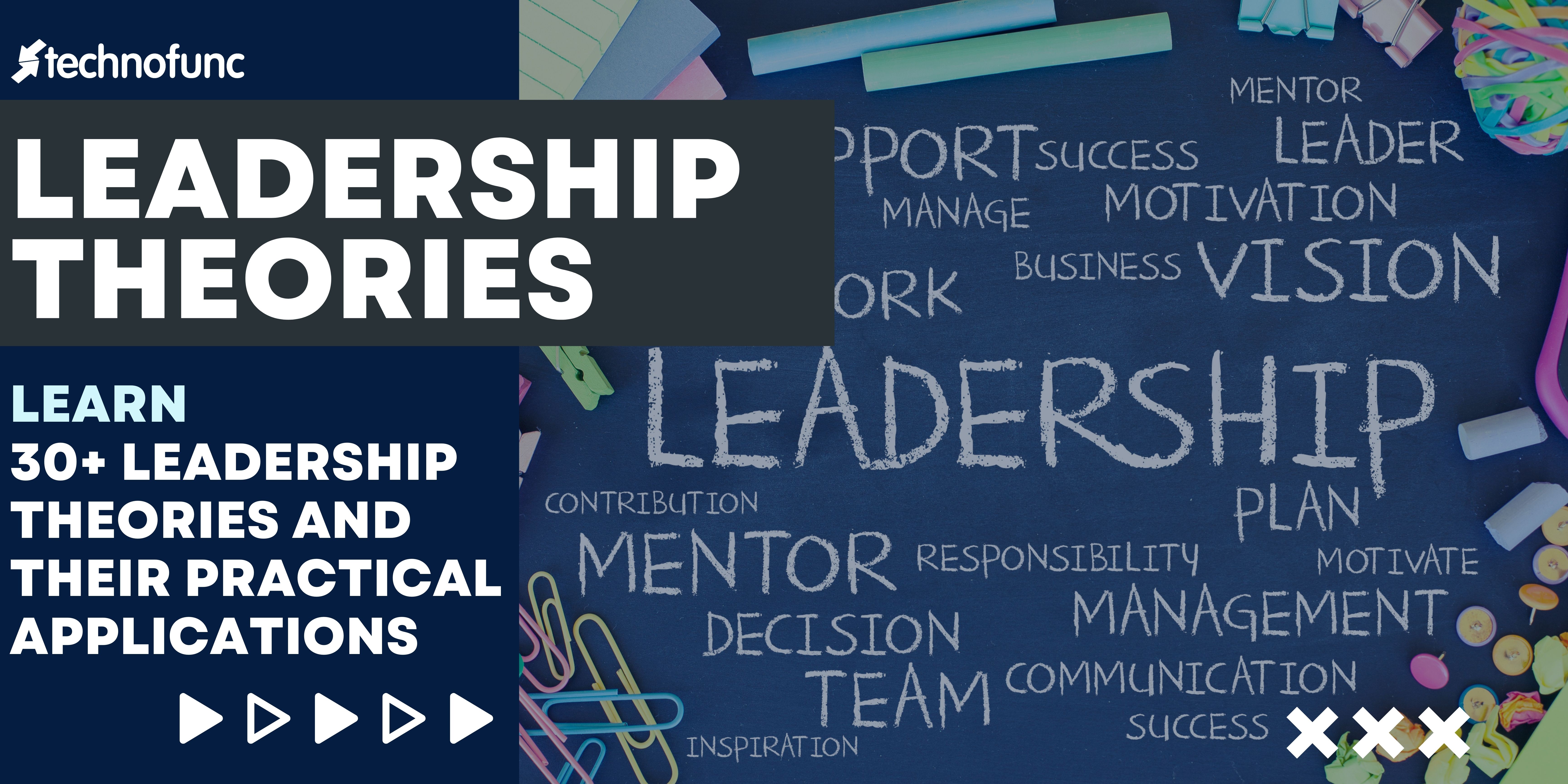- Home
- Business Processes
- Industry Knowledge
- Aerospace Industry
- Automotive Industry
- Banking Domain
- BFSI Industry
- Consumer/ FMCG Industry
- Chemicals Industry
- Engineering & Construction
- Energy Industry
- Education Domain
- Finance Domain
- Hospitality Domain
- Healthcare Industry
- Insurance Domain
- Retail Industry
- Travel and Tourism Domain
- Telecom Industry
- Leadership Skills
- eLearning
- Home
- Leadership
- Leadership Theories
Leadership Theories

Theories on Leadership
Learn how and why certain individuals become leaders, theoretical approach on leadership and how to apply leadership in the real-world organizations.
TechnoFunc brings to you various theories on leadership to advance your understanding of different approaches to leadership and learn new ways to practice leadership more effectively. Start building your foundations of Leadership. There is a wide and ever growing interest and different schools of thoughts in the study of leadership as it's so important for success of individual, organization and nations. Over time, a number of theories of leadership have been proposed to explain the concept and complexities of the leadership process. Quickly enhance your leadership skills and boost your leadership abilities.!
Authentic Leadership

Authentic leadership is a new approach to leadership in which leaders are genuine, self-aware, transparent, build honest relationships, and work on an ethical foundation. Authenticity is one of the core values of leadership. Authentic leaders have truthful self-concepts and they inspire by promoting openness by acting in a real, genuine, and sincere way. Authenticity requires self-awareness and the ability to act in accordance with one's true self.
Bass's Transformational Leadership Theory

Bass Transformational Leadership Theory is based on performance beyond expectations approach which defines four elements of transformational leadership. The 4 elements described by Bernard A. Bass in 1985 are Idealised Influence, Intellectual Stimulation, Individualised Consideration, and Inspirational Motivation. This study highlights four key insights about performance beyond expectations and associated criteria to measure it.
Behavioral Theories of Leadership

Behavioral Theory of leadership is a big leap from Trait Theory, as it was developed scientifically by conducting behaviour focused studies. The theory emphasizes that leadership capability can be learned, rather than being inherent. This theory is based on the principle that a leader's behaviors can be conditioned in a manner that one can have a specific response to specific stimuli.
Burns Transformational Leadership Theory

Transformational leadership theory has been defined by James MacGregor Burns as a process where both leaders and followers mutually raise one another to higher levels of morality and motivation. The concept of transforming leader works with teams to garner trust, respect, and admiration while reaching to higher moral positions. The transformational theory of leadership was developed while studying political leaders and how they use charismatic methods to attract people to the values.
Characteristics of Leadership

There are four characteristics of leadership that help us to understand the character of leadership as a concept. 1. Leadership is a process, 2. Leadership involves influence, 3. Leadership always occurs in a group context and 4. Leadership involves goal attainment. These are the four components that make up the character of the 'leadership' term and help us to define the leadership concept. All of these components of leadership have common characteristics.
Explore Our Free Training Articles or
Sign Up to Start With Our eLearning Courses

About Us
Learning
© 2023 TechnoFunc, All Rights Reserved